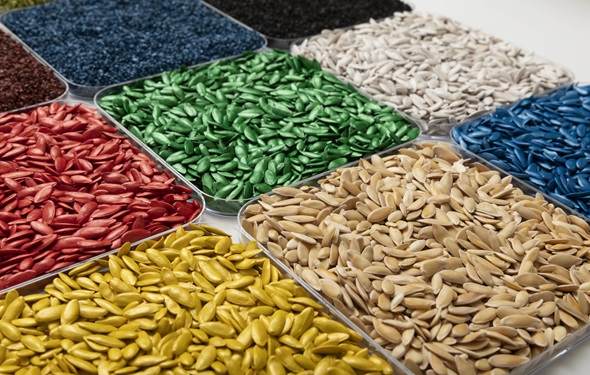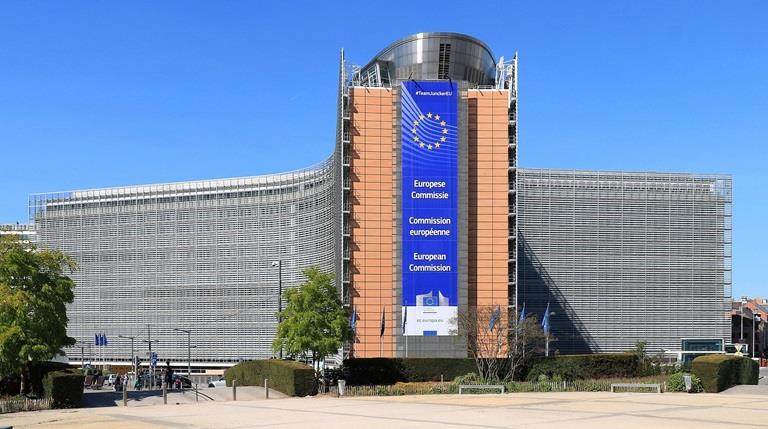Microplastic restriction adopted by EU commission
In our newsletter issued in October 2023, the key topic is the microplastic restriction adopted by the EU. We also look at 3 other topics to keep you up to speed on what's happening in the sector to meet the challenges of this ban on microplastics.
CONTENTS
- Microplastic restriction adopted
- Is France planning to speed up the ban?
- What are Incotec's plans for launching MPF products worldwide?
- What statements are there from regional and international seed federations?
Microplastic restriction adopted
In September 2023 the European Commission adopted the microplastic restriction as proposed by ECHA. The adopted restriction uses a broad definition of microplastics. The first measures start applying on 17 October, when the restriction enters into force. In other cases, the sales ban will apply after a longer period to give affected stakeholders the time to develop and switch to alternatives.

“Today, the Commission takes another major step to protect the environment by adopting measures that restrict microplastics intentionally added to products under the EU chemical legislation REACH. The new rules will prevent the release to the environment of about half a million tonnes of microplastics. They will prohibit the sale of microplastics as such, and of products to which microplastics have been added on purpose and that release those microplastics when used.”
What are the European deadlines?
- 1 January 2027 France restricts ahead of regulation the use of film coats (see article below)
- 17 October 2028 entry into force for products for agricultural and horticultural uses including seed treatments
- 17 October 2031 entry into force for plant protection and seeds treated with those products, and biocidal products [1]
What preceded this decision?
In 2017 the European Commission requested ECHA to assess the scientific evidence for taking regulatory action at the EU level on microplastics that are intentionally added to products (i.e. substances and mixtures). In 2019, ECHA proposed a wide-ranging restriction on microplastics in products placed on the EU/EEA market to avoid or reduce their release to the environment. The proposal is expected to prevent the release of 500 000 tonnes of microplastics over 20 years.
[1] Regulation (EU) 2023/2055 of September 25, 2023, amending Annex XVII of REACH to Regulation (EC) No. 1907/2006 ‘Registration, Evaluation, Authorization and Restriction of Chemicals (REACH) as regards synthetic polymer microparticles
Official Journal of the European Union, September 27, 2023
3 things you need to know about microplastics
1. Is France planning to speed up the ban?
We reported earlier that the French government may introduce a restriction on the use of microplastic earlier than is agreed in the rest of the EU. Their ambitions come from the goal to fight waste and turn France into a circular economy. More details regarding their ambitions regarding microplastics can be found in the link below which dates from February 2020.
(https://www.legifrance.gouv.fr/jorf/article_jo/JORFARTI000041553847)
In 2020 ECHA ruling was supposed to be implemented in 2027 - and the French government may have set their timing accordingly. There have been delays in implementation of the restrictions, also due to COVID. For now, the date of January 2027 still stands upright.
2. What are Incotec's plans for launching MPF products worldwide?

Incotec already offers microplastic free solutions in all regions today. And we have the ambition to have a complete microplastic free offering globally latest 2031. Whereby Europe will already have MPF alternatives for all filmcoats, encrustments and pellets in 2026, closely followed by North America and Latin America in 2028. The Asia region will be the last region to offer a complete range. Phasing out of microplastic containing products will be done as quickly as possible yet can only be completed after our customers have had sufficient time to validate the alternatives.
3. What statements are there from regional and international seed federations?
Seed federations in general are embracing sustainable farming and support the ban on the use of intentional microplastics. There is a pledge however that sufficient time should be given to make the transition to microplastic free alternatives. Especially in case of Plant Protection Products, or for film coats intended for complex PPP slurries, microplastic free alternatives are currently not always available and in case of PPPs they also need registration, meaning that there is a concern that development of these products by the suppliers and subsequent validation by seed companies will be very tight. This concern has been shared with regulators, and it is hoped that the 2028 and 2031 deadlines in Europe will be made by all parties involved. There might be a scenario that solutions aren’t available by then and it remains to be seen what will happen then. In theory extra time might be granted. Time will tell if that’s necessary.

REACH committee vote on microplastics
